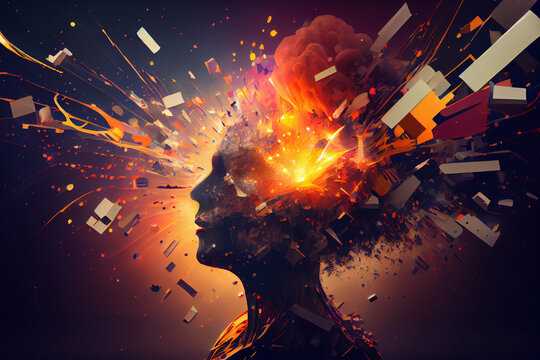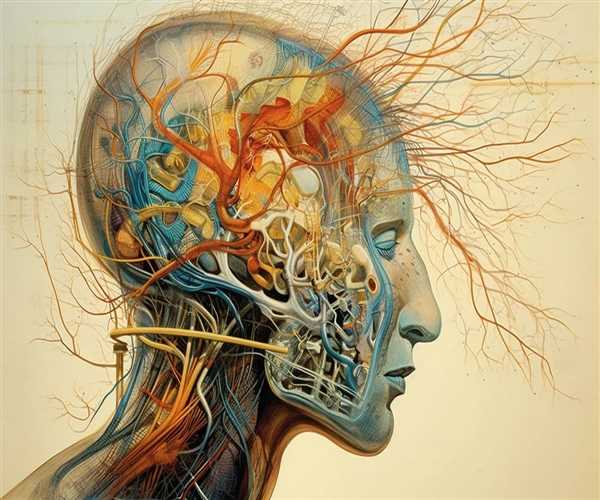
13-Aug-2023 , Updated on 8/13/2023 10:06:41 PM
Know more about the mystery of self-awareness
Highlights
- The concept of self awareness involves recognizing oneself as a being, with thoughts, emotions and personal experiences.
- The question of how and why consciousness and self awareness emerge in the brain remains an enduring enigma.
- Philosophers have engaged in debates for centuries delving into ideas such as the "mind body problem" and the connection, between the brain and subjective perception.
- René Descartes famously coined the phrase "I think therefore I am" to convey the certainty of ones existence through self awareness.
- Neuroscientific studies have revealed that self awareness is closely linked to areas of the brain, the prefrontal cortex.
The nature of cognizance has intrigued philosophers, scientists, and thinkers for centuries. Among the enigmatic factors of attention, self-consciousness stands proud as one of the maximum confusing mysteries. The potential to no longer best perceive the world however additionally to recognize and mirror upon one's own life increases profound questions on the character of our minds and the universe itself. This view delves into the fascinating realm of self-consciousness, exploring its significance, ability reasons, and the continuing clinical and philosophical debates surrounding this complex phenomenon.
Defining Self-Awareness
At its core, self-awareness is the capacity to understand oneself as a awesome person become independent from the outside international and to have a feel of introspection, allowing one to reflect on mind, emotions, and studies. While this might look like a straightforward concept, its implications are some distance-attaining and feature full-size philosophical, psychological, and neurological implications.
The Significance of Self-Awareness
Self-focus isn't always most effective an abstract philosophical puzzle; it has practical implications for our ordinary lives. It is a fundamental element of human cognition, influencing our decision-making methods, emotional law, and social interactions. The capacity to apprehend our very own thoughts and feelings is essential for empathizing with others, forming significant relationships, and adapting to changing instances.
Moreover, self-recognition performs a pivotal position in the development of focus itself. It is considered a better-order cognitive feature that separates people from other animals, granting us the ability to contemplate existential questions, have interaction in innovative endeavors, or even question the character of fact.
The Philosophical Conundrum
Throughout records, philosophers have grappled with the character of self-awareness. The ancient Greek aphorism "Know thyself" encapsulates the pursuit of self-recognition as a route to expertise. Renowned philosophers like René Descartes pondered the duality of mind and body, proposing that the thoughts (or soul) is wonderful from the bodily realm and serves as the seat of recognition and self-focus.
Modern philosophical discussions often revolve across the difficult hassle of awareness coined with the aid of logician David Chalmers. This hassle pertains to why and how bodily methods inside the brain supply upward thrust to subjective studies. Explaining the neural mechanisms underlying self-cognizance stays a powerful mission, elevating questions about the fundamental nature of fact and the mind's relationship to the body.
Neuroscience and Self-Awareness
Neuroscience has made large strides in unraveling the neural basis of self-focus, although many mysteries stay. Research suggests that self-awareness is closely tied to the mind's prefrontal cortex, in particular the medial prefrontal cortex. This vicinity is involved in tasks such as introspection, self-reflection, and information the perspectives of others. Damage to this area can result in disruptions in self-cognizance, as located in certain neurological situations.

The mirror take a look is a classic test used to evaluate self-focus in animals. When an animal recognizes itself in a mirror, it is believed to possess a sure degree of self-cognizance. While a few animals, like extremely good apes and dolphins, skip this take a look at, it is doubtful whether their self-consciousness fits the depth of human self-focus.
The Role of Development and Culture
The improvement of self-attention in humans is a complicated interplay of biological maturation and environmental effects. Studies with toddlers have proven that self-awareness emerges progressively at some stage in the first years of life. Initially, toddlers may react to their very own mirrored image as though it had been another man or woman, but as they develop, they begin to recognize themselves.
Culture additionally shapes the manner self-cognizance is thought and expressed. Some cultures emphasize collective identity over individuality, which could influence the improvement of self-concept. Additionally, cultural practices and beliefs can impact introspective processes and the manner human beings relate to their internal selves.
Artificial Intelligence and Self-Awareness
As synthetic intelligence advances, questions get up about the potential for creating machines with self-attention. Can algorithms and neural networks possess attention akin to human self-attention? This subject matter raises ethical dilemmas and philosophical quandaries approximately the character of consciousness, personhood, and the limits among human and system.
The Quest for Understanding Continues
In the hunt to resolve the thriller of self-consciousness, science and philosophy converge and diverge in captivating methods. Scientific advancements have shed light on the neural correlates of self-cognizance, yet the subjective nature of cognizance poses challenges for objective look at. Philosophical inquiries keep to explore the metaphysical and epistemological implications of self-consciousness, elevating questions on the connection between mind and body, the bounds of medical inquiry, and the very nature of fact.
As our know-how of the brain and attention deepens, interdisciplinary procedures that integrate philosophy, neuroscience, psychology, or even synthetic intelligence could be important for making development. The enigma of self-attention no longer most effectively tantalizes the curious minds of today but also holds the important thing to unlocking profound insights into the character of human lifestyles and the universe itself. In the continuing exploration of this mystery, humanity unearths itself on a journey of discovery that guarantees to reshape the way we understand no longer the most effective ourselves but also the problematic tapestry of reality.
SEO and Content Writer
I am Drishan vig. I used to write blogs, articles, and stories in a way that entices the audience. I assure you that consistency, style, and tone must be met while writing the content. Working with the clients like bfc, varthana, ITC hotels, indusind, mumpa, mollydolly etc. has made me realized that writing content is not enough but doing seo is the first thing for it.
Join Our Newsletter
Subscribe to our newsletter to receive emails about new views posts, releases and updates.
Copyright 2010 - 2026 MindStick Software Pvt. Ltd. All Rights Reserved Privacy Policy | Terms & Conditions | Cookie Policy